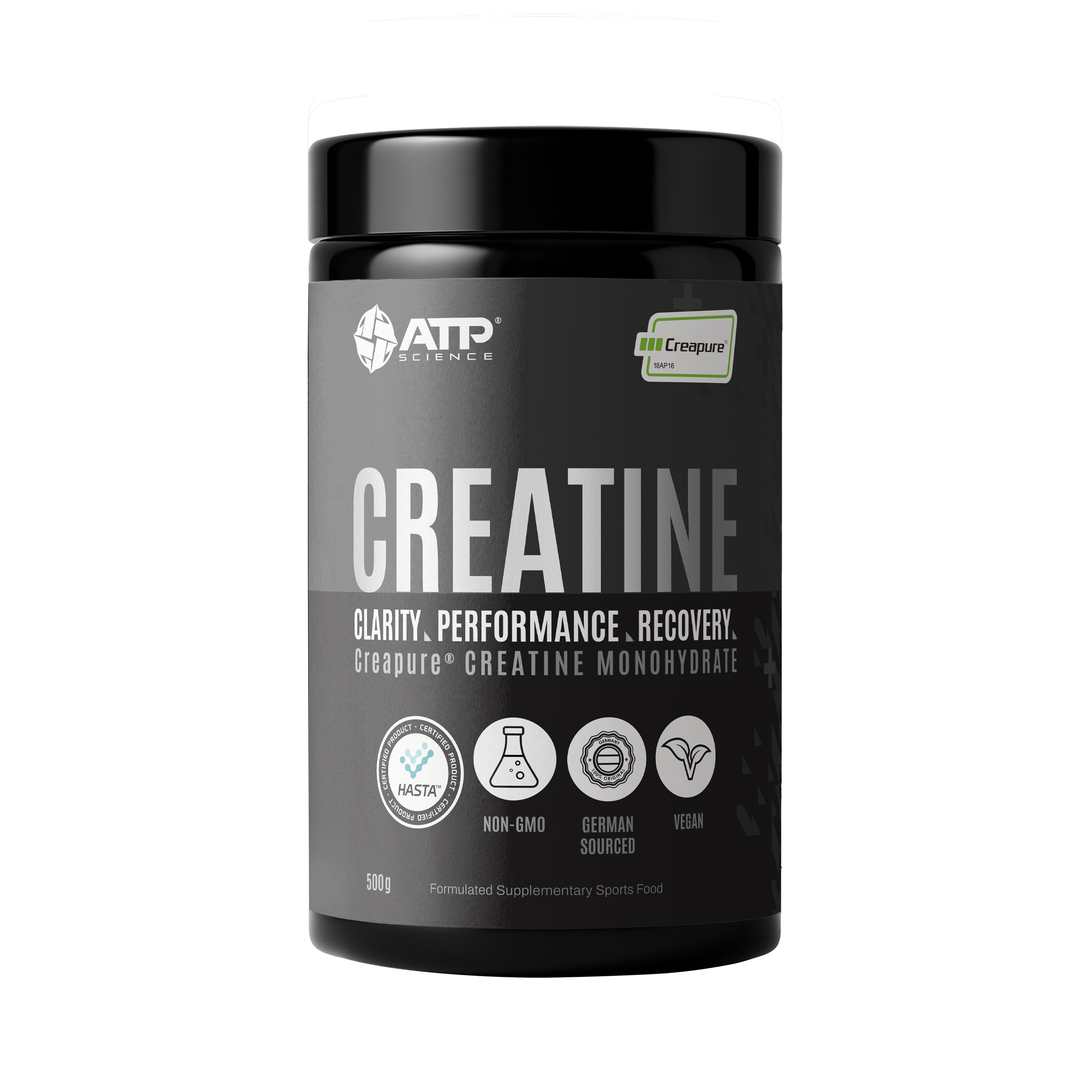What is L-Glutamine, How and When to Supplement
L-Glutamine is a non-essential amino acid and is conditionally essential in humans, meaning the body can usually synthesize sufficient amounts of it, but in some instances of stress (such as intense exercise), the body's demand for glutamine increases and glutamine must be obtained from the diet.(1) In fact, glutamine is so important to the body, it is the most abundant amino acid found in the blood!
Increase Muscle Strength
Clinical trials provide important confirmation that dietary glutamine supplementation is indeed associated with improving the metabolic response to stress and injury. Supplemental glutamine improves nitrogen balance and preserves the concentration of glutamine in skeletal muscle which plays an important role in protein synthesis to support muscle growth. (2)
Reduced Muscle Fatigue and Soreness
The effects of L-glutamine supplementation on quadriceps muscle strength and soreness ratings following resistance exercise show that supplementation can reduce post-exercise muscle soreness. Sixteen healthy participants volunteered in a double-blind, randomized, placebo-controlled crossover study. Muscle soreness was measured before, immediately following, 24, 48, and 72 hr post-resistance exercise. L-glutamine resulted in greater relative peak power during the exercise. In all the individuals, L-glutamine resulted in lower soreness ratings at 24, 48 and 72 hour post-exercise. The bottom line is that L-glutamine supplementation resulted in faster recovery of peak power and diminished muscle soreness following exercise. (3)
Fluid Balance – Less Bloating for Bodybuilding
In selected patients, glutamine preserves normal distribution of body water by preventing expansion of extracellular water and reducing fluid retention. This is vital for competition prep if you are a bodybuilder or if you simply want to look better.
Gut Health
Gut health is important in general but can also play a key role with helping you to meet your training goals in two very mentionable ways.
In general L -Glutamine is involved in many processes in the body, including the maintenance of healthy gut function. It is commonly recommended for conditions that affect the digestive system, such as inflammatory bowel disease (IBD) and leaky gut syndrome. (4) L-glutamine is thought to support gut health in several ways. For example, it may help repair and regenerate the lining of the gut, which can help improve gut barrier function and reduce symptoms of leaky gut. It may also help reduce inflammation in the gut and support the growth of healthy gut bacteria.(5) Additionally, L-glutamine may help improve nutrient absorption in the gut, which can support overall digestive health. (6)
How Can This Help with Exercise?
A possible mechanism for the helpful effects of L-Glutamine on the stressed gut is the increased production of arginine, which serves as a precursor for nitric oxide, a potent vasodilator. (7) If you are already working to promote nitric oxide production to help increase your workout power and muscle strength then L-Glutamine may be your missing link.
Exercise-induced elevation in temperature can also be associated with intestinal permeability/leaky gut. It is important to be aware of the potential effects that stress, in the form of exercise can have on intestinal permeability, especially if you are already suffering with issues in this area. The good news is that 7 days of oral glutamine supplementation can protect the gut during high-intensity exercise by reducing intestinal permeability, this was found to be successful when used in conjunction with the average workout length of 60 minutes. (8)
Supplement or Foods – How and When to Take L-Glutamine
L-glutamine is found naturally in many foods, including meat, fish, dairy products, and beans. It can also be taken as a dietary supplement as the body uses L-glutamine for many important processes, including the maintenance of healthy gut function and the support of muscle growth and recovery. Some people may benefit from taking a L-glutamine supplement if they have a condition that affects their gut health or if they are looking to support muscle growth and recovery. L-Glutamine post-workout could be taken at 5grams or for maximum benefits, expert nutritionists recommend consuming 5 grams, 1 to 3 times daily; once in the morning, pre and post-workout, and before bed.
The Take Home Message
L-Glutamine becomes conditionally essential during times of exercise and can help to increase muscle strength, reduce fatigue, soreness, and bloating as well as play an important role in gut health. Your gut is more important than you may think when it comes to your workout potential and is not to be overlooked. Supplementing with L-Glutamine could be the thing that helps to get you across the line and meeting your training goals.
References
- Lacey, JM; Wilmore, DW (Aug 1990). "Is glutamine a conditionally essential amino acid?". Nutrition Reviews. 48 (8): 297–309.
- Tardito S, Oudin A, Ahmed SU, Fack F, Keunen O, Zheng L, Miletic H, Sakariassen PØ, Weinstock A, Wagner A, Lindsay SL, Hock AK, Barnett SC, Ruppin E, Mørkve SH, Lund-Johansen M, Chalmers AJ, Bjerkvig R, Niclou SP, Gottlieb E. Glutamine synthetase activity fuels nucleotide biosynthesis and supports growth of glutamine-restricted glioblastoma. Nat Cell Biol. 2015 Dec;17(12):1556-68. doi: 10.1038/ncb3272. Epub 2015 Nov 23. PMID: 26595383; PMCID: PMC4663685.Int J Sport Nutr Exerc Metab. 2015 Oct;25(5):417-26.
- The Influence of Oral L-Glutamine Supplementation on Muscle Strength Recovery and Soreness Following Unilateral Knee Extension Eccentric Exercise. Legault Z1, Bagnall N, Kimmerly DS.
- Kim MH, Kim H. The Roles of Glutamine in the Intestine and Its Implication in Intestinal Diseases. Int J Mol Sci. 2017 May 12;18(5):1051. doi: 10.3390/ijms18051051. PMID: 28498331; PMCID: PMC5454963.
- Achamrah N, Déchelotte P, Coëffier M. Glutamine and the regulation of intestinal permeability: from bench to bedside. Curr Opin Clin Nutr Metab Care. 2017 Jan;20(1):86-91. doi: 10.1097/MCO.0000000000000339. PMID: 27749689.
- Ballard ST, Hunter JH, Taylor AE. Regulation of tight-junction permeability during nutrient absorption across the intestinal epithelium. Annu Rev Nutr. 1995;15:35-55. doi: 10.1146/annurev.nu.15.070195.000343. PMID: 8527224.
- Gerdien C Ligthart-Melis, Marcel CG van de Poll, Petra G Boelens, Cornelis HC Dejong, Nicolaas EP Deutz, Paul AM van Leeuwen, Glutamine is an important precursor for de novo synthesis of arginine in humans, The American Journal of Clinical Nutrition, Volume 87, Issue 5, May 2008, Pages 1282–1289, https://doi.org/10.1093/ajcn/87.5.1282
- Zuhl MN, Lanphere KR, Kravitz L, Mermier CM, Schneider S, Dokladny K, Moseley PL. Effects of oral glutamine supplementation on exercise-induced gastrointestinal permeability and tight junction protein expression. J Appl Physiol (1985). 2014 Jan 15;116(2):183-91. doi: 10.1152/japplphysiol.00646.2013. Epub 2013 Nov 27. PMID: 24285149; PMCID: PMC3921361.


















